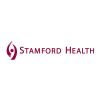Recognizing Heart Disease Symptoms in Older Adults: Early Detection for Better Health
- 1. Why Heart Disease is Common in Older Adults
- 2. Key Symptoms of Heart Disease in Older Adults
- 3. How to Recognize Heart Disease in Seniors
- 4. Common Heart Disease Warning Signs
- 5. The Importance of Early Detection
- 6. Seeking Help and Treatment Options
1. Why Heart Disease is Common in Older Adults
Heart disease is one of the leading causes of illness and death in older adults. As we age, our bodies go through a range of changes that can affect the cardiovascular system. Factors such as high blood pressure, cholesterol buildup, and the gradual weakening of the heart muscle contribute to an increased risk of heart disease in seniors. Additionally, lifestyle factors such as poor diet, lack of physical activity, and smoking can compound these risks, making it even more important to recognize early symptoms.

2. Key Symptoms of Heart Disease in Older Adults
Recognizing the symptoms of heart disease in older adults is crucial for early intervention. While some symptoms may be subtle, others can be more pronounced. Common symptoms to look out for include:
- Chest Pain or Discomfort: A feeling of pressure or tightness in the chest can be a warning sign of heart disease, particularly in the case of a heart attack.
- Shortness of Breath: Difficulty breathing or feeling winded during normal activities can be indicative of heart problems.
- Fatigue: Unexplained fatigue or weakness that doesn't improve with rest may signal that the heart isn't pumping efficiently.
- Swelling in the Legs, Ankles, or Feet: Fluid retention due to heart failure can cause noticeable swelling in the lower extremities.
- Irregular Heartbeat: An irregular or rapid heartbeat may suggest arrhythmia or other heart-related issues.
3. How to Recognize Heart Disease in Seniors
Older adults may not always exhibit the same symptoms of heart disease as younger individuals, making it harder to detect. For instance, symptoms like chest pain may not always be severe, and seniors may attribute them to other causes like indigestion. It's important to look for changes in their overall health, such as:
- Changes in Physical Activity: If an older adult starts experiencing difficulty with physical tasks that were previously easy, it may indicate heart-related issues.
- New or Worsening Symptoms: Any new or worsening symptoms, such as breathlessness, fatigue, or dizziness, should be taken seriously.
- Excessive Sweating: Cold sweats or sudden sweating, especially when accompanied by chest pain, can signal heart trouble.
4. Common Heart Disease Warning Signs
Recognizing early signs of heart disease is crucial for timely treatment. Some of the most common warning signs that older adults should not ignore include:
- Chest Pressure: Persistent chest discomfort, often described as a squeezing or heavy sensation, can signal a potential heart attack.
- Lightheadedness or Dizziness: Feeling faint, especially during physical exertion, can be a sign of a heart problem.
- Nausea or Vomiting: Unexplained nausea or vomiting can accompany a heart attack, particularly in women.
- Pain in the Arm, Neck, or Jaw: Pain radiating to the left arm, neck, or jaw is a classic symptom of a heart attack in some individuals.
5. The Importance of Early Detection
Early detection of heart disease can significantly improve outcomes. Recognizing the symptoms early allows seniors to seek medical attention before the condition progresses too far. Heart disease is often manageable when caught early, with treatment options such as medication, lifestyle changes, and sometimes surgery, which can prevent more severe complications like heart attacks or strokes. This makes it crucial for both older adults and caregivers to stay vigilant about any changes in health and seek help promptly.
Atlanta Heart Specialists
atlanta heart specialists
4375 Johns Creek Pkwy #350, Suwanee, GA 30024, USA

6. Seeking Help and Treatment Options
If you or a loved one is experiencing symptoms of heart disease, it's important to seek help as soon as possible. Consult a healthcare provider or cardiologist who can assess the situation and recommend appropriate treatment. Depending on the severity and type of heart disease, treatment options may include:
- Lifestyle Changes: Diet, exercise, and stress management can help improve heart health.
- Medications: Blood pressure medications, statins, or blood thinners may be prescribed to manage symptoms and reduce risks.
- Surgical Interventions: In more severe cases, surgery such as bypass surgery or stent placement may be necessary.
By recognizing the symptoms of heart disease early, you can take proactive steps to manage and improve your heart health. If you’re concerned about heart disease, schedule a consultation with a trusted cardiologist to discuss your symptoms and options for prevention or treatment.
Looking for heart health support? Explore our range of heart health supplements and resources designed to support seniors in maintaining healthy cardiovascular function.





















Deborah Heart and Lung Center
deborah heart and lung center
200 Trenton Rd, Browns Mills, NJ 08015, USA